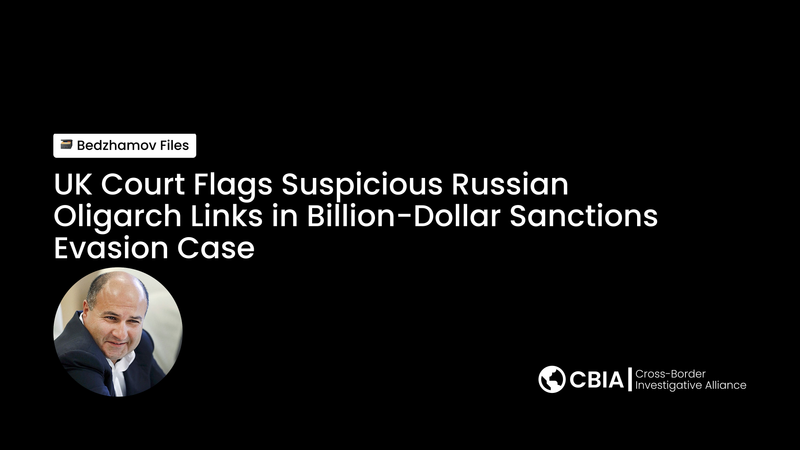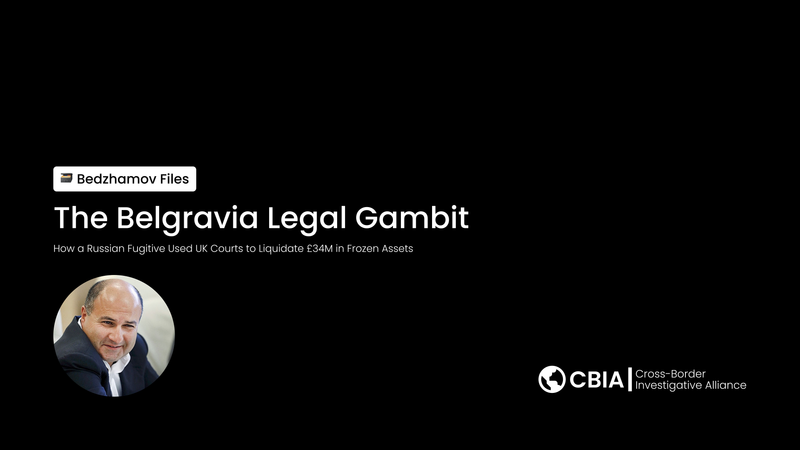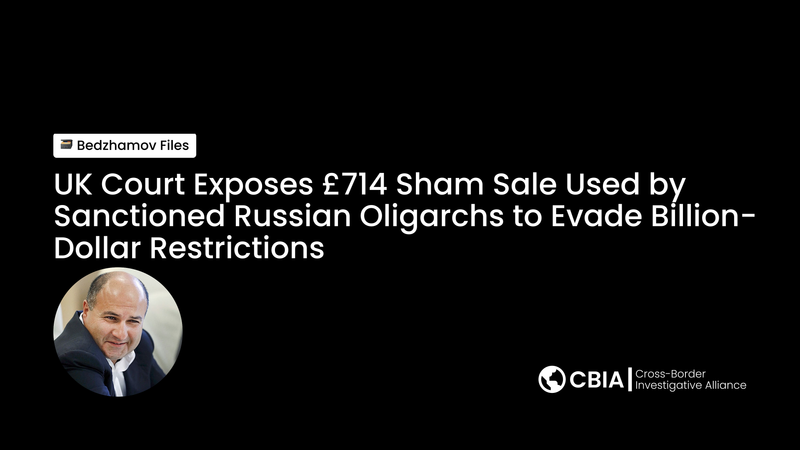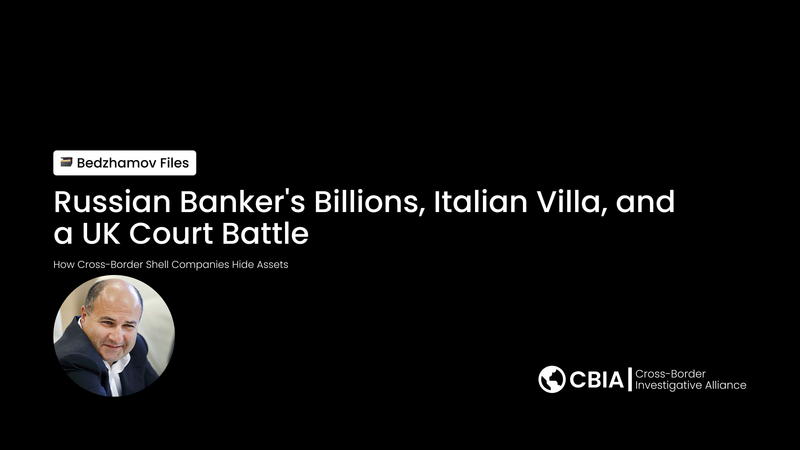The £35 Million Mansion at the Heart of a Cross-Border Banking Scandal
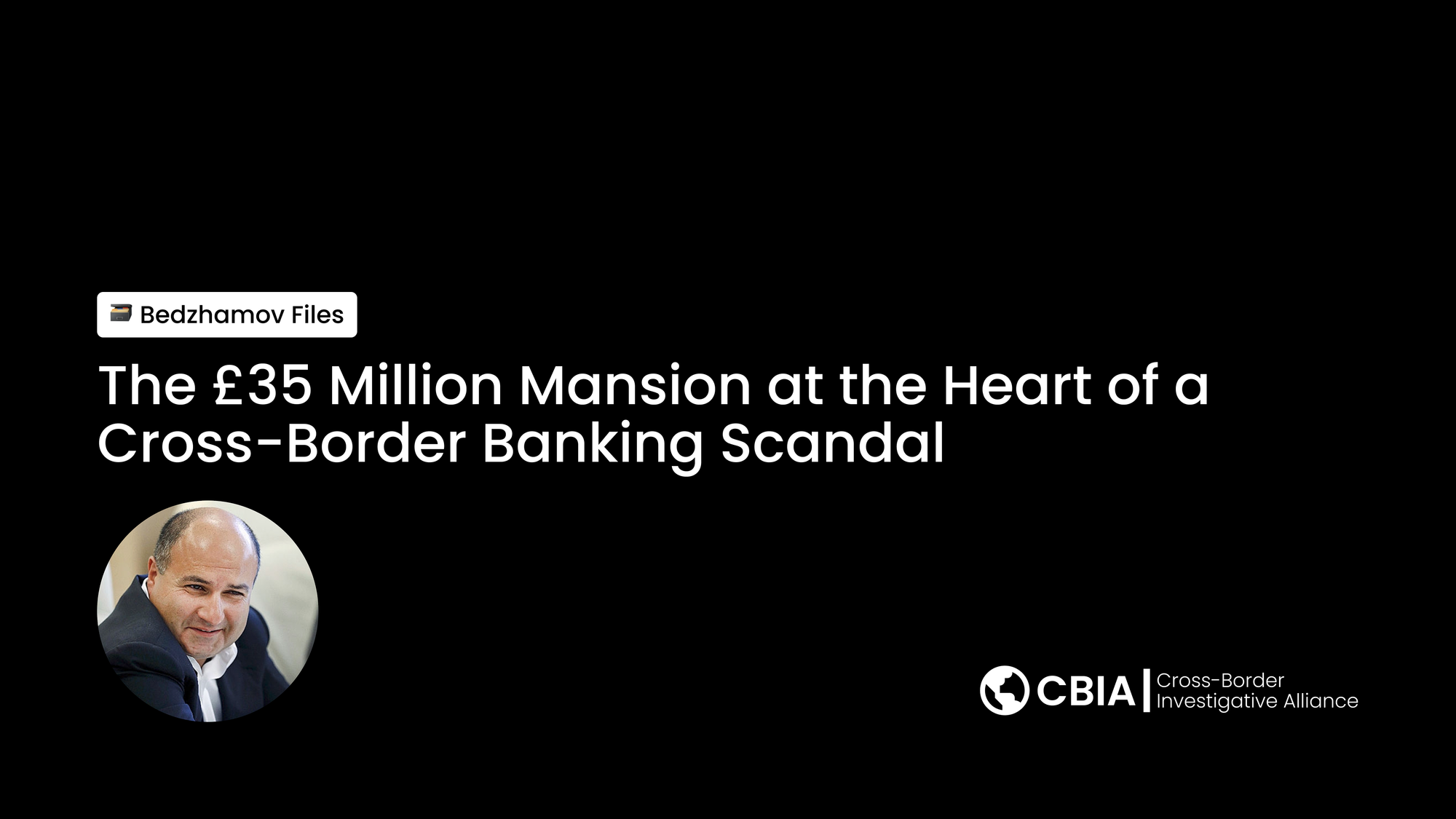
In the heart of London's most exclusive district, a Grade I listed mansion at 17 Belgrave Square sits at the center of a complex international legal battle that exposes the sophisticated mechanisms used to hide stolen wealth across borders.
The property belongs to Georgy Bedzhamov, the former owner of Russia's now-bankrupt Vneshprombank, who is accused of embezzling billions from the institution between 2009 and 2015. What began as a criminal case in Moscow has evolved into a multi-jurisdictional legal web spanning from Russian courts to London's High Court, revealing how fugitive financiers exploit cross-border legal systems to protect their assets.
The Banking Scandal Behind the Mansion
Bedzhamov's troubles began when Vneshprombank collapsed in December 2015, leading to criminal charges of embezzlement. His sister, Larisa Markus, who served as the bank's president, has already admitted to the crimes and is serving a custodial sentence in Russia [2]. Russian authorities believe Bedzhamov was the mastermind behind the scheme, using stolen funds to finance an extravagant lifestyle including two yachts named Ester I and Ester II, private jets, and luxury real estate across multiple countries [2].
The Belgravia mansion, purchased in January 2015 for £35 million, represents just one piece of this alleged criminal enterprise [1]. Thousands of Russian and foreign bank customers lost their deposits when Vneshprombank went bankrupt, making the recovery of these assets crucial for justice [2].
Cross-Border Asset Protection Schemes
When Bedzhamov fled to London in 2016, he allegedly orchestrated a sophisticated scheme to shield his assets from creditors. Court documents reveal he created what prosecutors describe as a "fictitious charge" over the Belgrave Square property in favor of Clement Glory Limited, a British Virgin Islands-based company that continues to provide consultancy services to Bedzhamov [2].
This arrangement exemplifies how offshore corporate structures can be weaponized to obscure asset ownership and frustrate international recovery efforts. The use of a BVI company creates additional layers of legal complexity that make it difficult for victims and authorities to trace and recover stolen assets.
The Legal Chess Game
The international legal battle demonstrates how different jurisdictions can be played against each other. In January 2021, Moscow's Tverskoy District Court seized the London property to ensure execution of any future sentence against Bedzhamov [2]. Meanwhile, in London's High Court, Bedzhamov successfully argued that he should be allowed to sell the mansion to pay £10 million in legal fees to two prominent law firms: £5 million to Mishcon de Reya and £5 million to Greenberg Traurig [1].
The High Court's decision came despite a worldwide freezing order obtained by Vneshprombank in 2018, which froze more than £1.3 billion worth of Bedzhamov's assets globally [1]. The order initially limited him to "ordinary living expenses" of £99,000 per month, though this was later increased to £230,800 monthly after successful legal arguments by Mishcon de Reya [1].
The Human Cost
Behind the legal maneuvering lies a human tragedy that extends far beyond London's elite property market. Thousands of Vneshprombank depositors—both Russian and foreign nationals—lost their savings when the bank collapsed [2]. These victims now watch as the man accused of stealing their money fights to sell a £35 million mansion to pay his legal bills.
The case also highlights how professional services firms become entangled in these complex international disputes. Seven senior lawyers, including six partners, left Mishcon de Reya for Greenberg Traurig during the case, creating additional complications and legal fees [1].
Implications for Cross-Border Justice
The Bedzhamov case illustrates both the challenges and possibilities of international asset recovery. While authorities have successfully obtained freezing orders and seizures across multiple jurisdictions, the complexity of cross-border legal procedures creates opportunities for delay and obfuscation.
The involvement of British Virgin Islands corporate structures adds another layer of complexity that investigators and prosecutors must navigate. Clement Glory Limited's role as a purported creditor demonstrates how offshore jurisdictions can be exploited to create artificial legal obstacles to asset recovery.
As this case continues to unfold, it serves as a stark reminder of how easily billions can disappear across borders, and how the international legal system's complexity can be both a tool for justice and a shield for those seeking to evade it.
The ultimate resolution of this case will likely set important precedents for international asset recovery and may influence how courts balance the rights of alleged criminals to legal representation against the rights of victims to recover stolen assets.
Sources:
[1] City AM, "Fugitive Russian oligarch allowed to sell Belgravia mansion to pay £10m legal fees," May 26, 2022
[2] Russian Legal Information Agency (RAPSI), "Moscow court seizes Georgy Bedzhamov's elite London mansion," January 27, 2021


